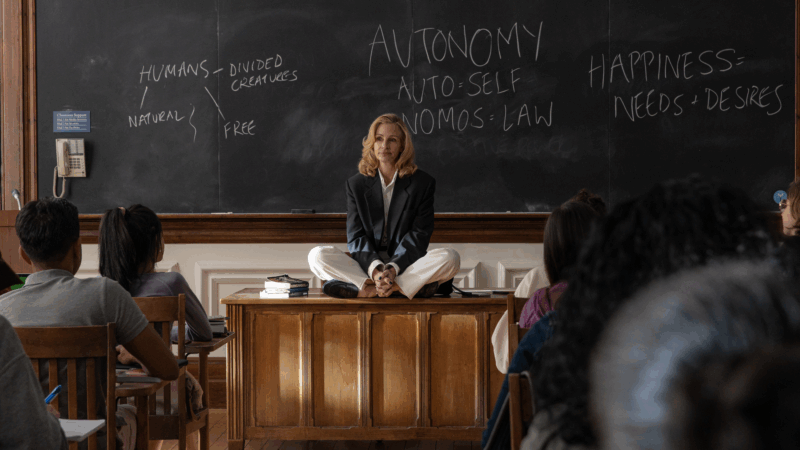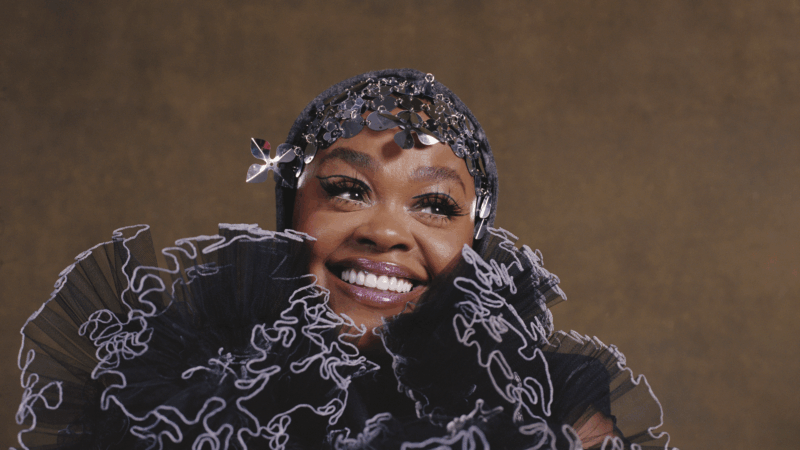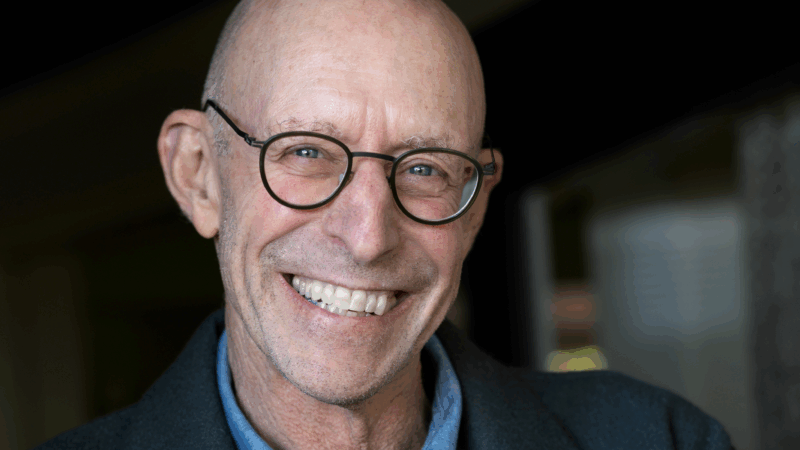This #MeToo melodrama isn’t great, but Julia Roberts’ performance is
There’s a brief moment in the high-toned academic potboiler After the Hunt when Julia Roberts lets out her signature laugh — that glorious, full-throated cackle that harks back at least to Pretty Woman. It’s wonderful to hear it again, especially for those of us who’ve longed to see more of Roberts on-screen lately.
After the Hunt, from the Italian director Luca Guadagnino, isn’t a great movie, but Roberts is undeniably great in it; this is her most commanding work since her Oscar-winning turn in Erin Brockovich 25 years ago. Here, though, Roberts is no crusader for justice; she’s a woman defined by emotional guardedness and moral ambivalence. She plays Alma Imhoff, a philosophy professor at Yale.
Alma is brilliant, respected and more than a little aloof, but she does have her favorites, including a prized Ph.D. student, Maggie, played by Ayo Edebiri, from The Bear. Alma is also close friends with a younger male professor, Hank, played by Andrew Garfield.
Early in the movie, which is set in the fall of 2019, Alma throws a dinner party with her psychoanalyst husband, Frederik — a wickedly observant Michael Stuhlbarg. Hank and Maggie are both guests, and the conversation turns to Maggie’s dissertation, which is supposedly brilliant. But before long, Hank, who’s clearly had too much to drink, begins ribbing Maggie and other Gen-Zers like her.
The screenwriter, Nora Garrett, writes juicy, florid dialogue that plays like a knowing Hollywood parody of academia-speak. But beneath all the party chatter, there’s an undercurrent of hostility — a sense that everyone here has something to hide.
That includes Alma, who’s concealing some dark secrets from decades earlier, which the film keeps alluding to and which threaten to resurface. And then the next evening, Alma receives some shocking news from Maggie: After the party, she says, Hank walked her home and then sexually assaulted her.
Maggie plans to report the assault and asks for Alma’s help, but Alma isn’t sure she believes Maggie. Frankly, we’re not sure if we believe her, either. The script has already clued us in to Maggie’s calculating streak, which Edebiri’s wobbly performance seems to over-emphasize. But does that mean that Maggie is lying?
Hank, for his part, denies the accusation, though as we see in a later scene, he’s more than capable of physical aggression. Garfield, often cast for his likability, seems to relish the role of a sleaze.
And so Maggie and Hank wage a tug-of-war for Alma’s support, complicated by questions about race, gender, sexuality and generational privilege. The characters openly dissect the optics of the situation, wondering if Maggie, a queer Black woman, deserves the benefit of the doubt in an arena dominated by straight white men. There’s also some sniping about the fact that Maggie’s rich, and that her parents are major donors to Yale.
Through it all, Roberts maintains a superb poker face, only hinting at Alma’s inner conflicts and also those pesky secrets. But at a certain point, she and Maggie have an on-campus confrontation, and their underlying tensions spill out into the open.
Guadagnino clearly relishes such moments and stages them with terrific, finger-snapping flair. Indeed, it’s the big soap-opera gestures — the heated arguments, the rhetorical flourishes, the gorgeous interiors of Alma and Frederik’s home — that seem to excite the director most, more so than any of the issues the film raises.
Guadagnino has always been good at tailoring his feverishly elegant style to a range of genres. He’s directed horror films, like Suspiria and Bones and All; the rapturous coming-of-age drama Call Me by Your Name; and a terrifically sexy sports movie in last year’s Challengers. With After the Hunt, he seems tickled to be making a topical melodrama, so much so that the actual topics in question collapse into something of a muddle.
That’s not to suggest that After the Hunt has nothing to say. The film is pointedly set in an era before the backlash against #MeToo had fully kicked in, and long before the attacks on DEI initiatives at universities and beyond. Some will find it dated as a result, but this is one point where I think Guadagnino and Garrett know exactly what they’re doing. In its final moments, this twisty puzzle reveals itself to be a time capsule — a sad reminder of a moment when progress, whether real or performative, seemed like a possibility.
R&B stars consider two ways to serve an audience
Two albums released the same day — Jill Scott's return from a long absence, and Brent Faiyaz's play for a mid-career pivot — offer opposing visions of artistic advancement in the genre.
Baby chicks link certain sounds with shapes, just like humans do
A surprising new study shows that baby chickens react the same way that humans do when tested for something called the "bouba-kiki effect," which has been linked to the emergence of language.
American Jordan Stolz speedskates to a third Olympic medal — silver this time
U.S. speedskater Jordan Stolz had a lot of hype accompanying him in these Winter Olympic Games. He's now got two gold medals, one silver, with one event to go.
Bad Bunny and J. Cole rule the pop charts
These days, the Super Bowl halftime show is a massive driver of the streaming, airplay and sales that fuel the Billboard charts. This week, Bad Bunny benefits from that influence.
Reporter’s notebook: My Olympic Lunar New Year
An NPR reporter covering the Olympics in Milan takes us on cultural side quests, to a hospitality house and a candy store.
Michael Pollan says AI may ‘think’ — but it will never be conscious
"Consciousness is under siege," says author Michael Pollan. His new book, A World Appears, explores consciousness on both a personal and technological level.








